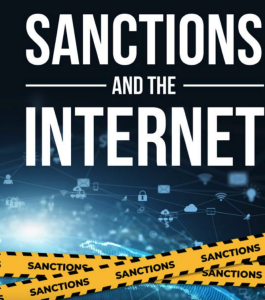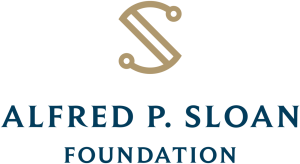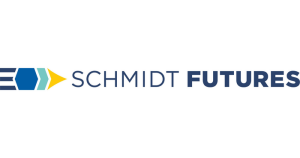We will use interviews, desk research and analytical narratives to provide a background on how sanctions have directly or indirectly affected access to the Internet.
Projects
Resolved: Understanding the Internet’s Surrender to Big DNS
Resolution of domain names is critical to the operation of the Internet and people’s access to web-services globally. A decade ago Domain Name System (DNS) resolution was mainly handled by decentralized infrastructure based on Free and Open software, run by independent operators around the world.…
The open Internet is in need of a sustainable and decentralized digital infrastructure. While studying emerging technologies to keep the Internet open is a worthy attempt, we should not ignore the infrastructure elements that have been critical to the functioning of the Internet for the past three decades. Such critical Internet infrastructures require strategies and collective action to maintain their decentralized nature and contribution to an open Internet. One such critical Internet infrastructure is Domain Name System resolvers. Resolution of domain names is critical to the operation of the Internet and people’s access to web-services globally. Geopolitical issues as well as consolidation of DNS resolvers affect global interoperability of the Internet. Even when consolidation is done by an altruistic organization that doesn’t collect utilization statistics, the fact of consolidation leaves the DNS open to commercial attacks with global implications. A recent court case in Germany involving intellectual property rights held by Sony Entertainment resulted in the Swiss Quad9 foundation blocking the resolution of some domain names on a global basis. Centralisation of such a critical component of the Internet leaves the DNS vulnerable to attacks on infrastructure, on the privacy of users, and on the content of the Internet. Understanding this trend and how it might be reversed is of utmost importance and this project tries to understand the reasons behind consolidation.
Coming Soon

Jonathan Brewer
Jonathan has been involved with the Internet industry for nearly thirty years. He launched a web hosting company in Kansas in the 1990s based on open source software. After moving to New Zealand in 2003 he founded a wholesale wireless provider again based on open source software. Around the same time he joined InternetNZ, the country’s main Internet Governance body.
Today he consults in the telecommunications industry on the design, build, and operation of broadband, public safety, and Internet of Things networks. He works across the Asia Pacific region and is active in regional networking communities. In New Zealand he works as a radio engineer, designing and certifying 4G, 5G, satellite, and fixed microwave services. He’s written papers on affordable connectivity, telecommunications regulation, emerging technologies and more for numerous ICT4D organisations.
SancNet
Geopolitical conflicts and wars have been affecting access to the Internet since the Internet became more formalized and in a way, industrialized. This project focuses on “economic sanctions”, their effect on access to the Internet and the value of interconnectedness without discrimination.
Geopolitical conflicts and wars have been affecting access to the Internet since the Internet became more formalized and in a way, industrialized. This project focuses on “economic sanctions”, their effect on access to the Internet and the value of interconnectedness without discrimination.
Because of its history, the Internet and access to it were always affected by geopolitical conflicts and wars. Once it became widely accessible to consumers, however, the Internet became subject to trade sanction regimes in the US and Europe and possibly elsewhere. There are debates about whether sanctions are effective for changing States’ behavior and what can be effectively sanctioned. As the Internet is a relatively new industrial area, this project proposes to adopt a systemic approach and document how sanctions are currently applied to the Internet, why there have been previous attempts not to apply sanctions to the Internet, whether contemporary problems necessitate application of sanctions to the Internet, and what a desirable outcome might be for sanctions and Internet access in the future.
– Policy solutions: considering past sanction exemptions, what are the potential pathways to arguing for policies that can diminish the impact of sanction on access to the Internet but at the same time help governments achieve their sanction goals.
– Strategies for compliance with sanctions while keeping the Internet global: the research discovers why businesses over comply with sanctions and how the risk strategies can change to maintain provision of services while still being in compliance with sanction rules.
– Institutional changes: the research will also look into whether we need institutional and governance changes in Internet governance organizations in order to maintain interconnectedness.
Related meetings
MENOG 2022
Internet Governance Forum 2022
RIPE 85 (2022)
Articles
Sanctions and the Internet (2023) final report:
Progress reports
2022: How do sanctions impact the Internet: https://labs.ripe.net/author/farzaneh-badiei/how-do-sanctions-impact-the-internet/
Researchers
- Farzaneh Badiei, Digital Medusa
- Zhenye (Ryan) Pan, Columbia University
Funding
This project was funded by RIPE NCC
Contact
Human Rights Lifecycle of a Terrorist Incident Online
From January 15 to May 31, 2022, the Working Group on Crisis Response Protocols (CRWG) – a subgroup of the Global Internet Forum to Counter Terrorism (GIFCT) – met with stakeholders across civil society organizations, governments, academics and companies (through a series of individual and…
From January 15 to May 31, 2022, the Working Group on Crisis Response Protocols (CRWG) – a subgroup of the Global Internet Forum to Counter Terrorism (GIFCT) – met with stakeholders across civil society organizations, governments, academics and companies (through a series of individual and group meetings in addition to tabletop exercises). The output of this effort is the present report that aims to: 1. Outline the lifecycle of a terrorist incident on the Internet and its human rights impact; 2. Propose a framework for crisis protocol operators and GIFCT to use for explicating the lifecycle of incidents and to consider human rights implications in crisis response; and 3. Clarify the relationship between human rights and GIFCT’s mission through explaining the human rights impact at each stage of the crisis lifecycle. It also provided one of the first “categories of terrorist attacks with an online angle”.
Digital Medusa led the working group and wrote the report with the help of the working group members.
- Year of collaboration: 2022
- Status: Complete
- Download the Report Here
- Categories of terrorist attack with an online angle (page 15)
- Human Rights Matrix (page 36)
Syllabus for Schools on Internet Governance
This syllabus was designed for the United Nations Internet Governance Forum. The syllabus is an advisory document that may guide those who wish to convene a school or teach Internet governance, or know more about the structure of IG courses. In addition to explaining how…
This syllabus was designed for the United Nations Internet Governance Forum. The syllabus is an advisory document that may guide those who wish to convene a school or teach Internet governance, or know more about the structure of IG courses.
In addition to explaining how the syllabus was created and how it could be used, the document contains the following sections:.
- Core Internet governance modules and elective modules, learning outcomes as well as a sample of faculty members and topics they teach.
- Teaching methods such as practicums, hands-on industry presentations, moot courts and others, How to find lecturers and experts?
- How to build coalitions, contribute to the Dynamic Coalition on Schools of Internet governance (DC-SIG)?
- Teaching methods such as practicums, hands-on industry presentations, moot courts and others, How to find lecturers and experts? How to build coalitions, contribute to the Dynamic Coalition on Schools of Internet governance (DC-SIG)?
- Year of collaboration: 2022
- Status: Complete
- Download the syllabus here
- Meetings: Teaching Internet Governance, stakeholders consultation )
https://drive.google.com/file/d/1Mj1GloSHQ1nQso5pl_9v3DcTzqZ7mCCw/view?usp=sharing
Trust and Safety Outreach and Engagement
Digital Medusa supports stakeholders outreach and engagement activities for Digital Trust and Safety Partnership. The activities entail liaising with civil society, academics, governments and external stakeholders. The outreach and engagement takes place through a series of workshops, one-on-one meetings with various stakeholders, taking part and speaking at…
- Year of collaboration: Started in 2022
- Status: Ongoing
Related Events
Immersive technology is poised to transform the way people work, play, and learn. From an emerging creator economy of virtual goods and services to cutting-edge applications that can improve education, health care, and manufacturing, augmented and virtual reality (AR/VR) technologies are unlocking new opportunities to communicate, access information, and engage with the world. These changes raise important questions, and how policymakers respond will have profound implications for the economy and society.
https://itif.org/events/2022/09/14/ar-vr-policy-conference-2022/
Watch here: ARVR Policy Conference 2022
Trust and Safety Research Conference 2022: https://www.tsresearchconference.org/
OECD Ministerial meeting: Building an Inclusive Digital Future: Digital Ministerial 2022







